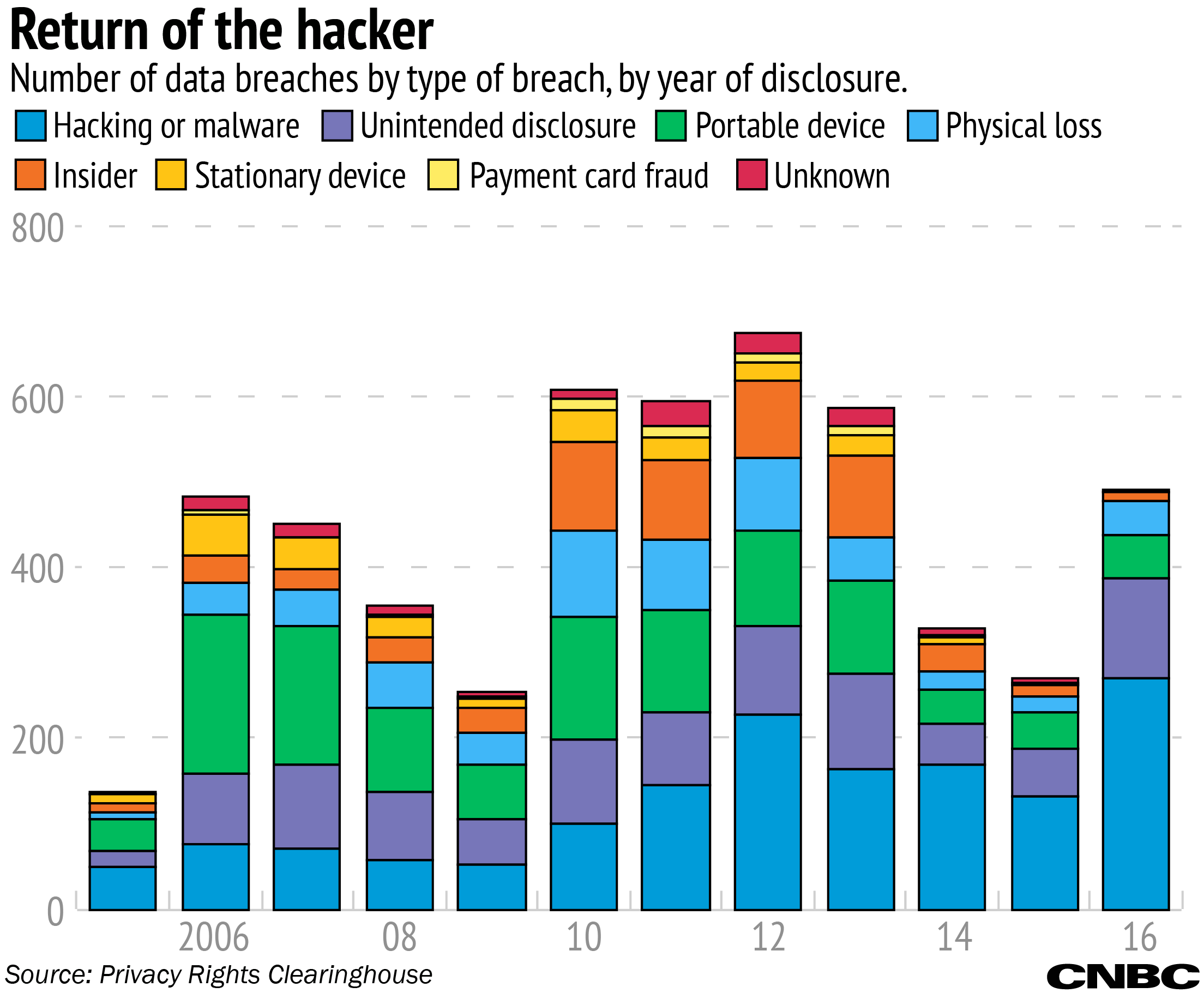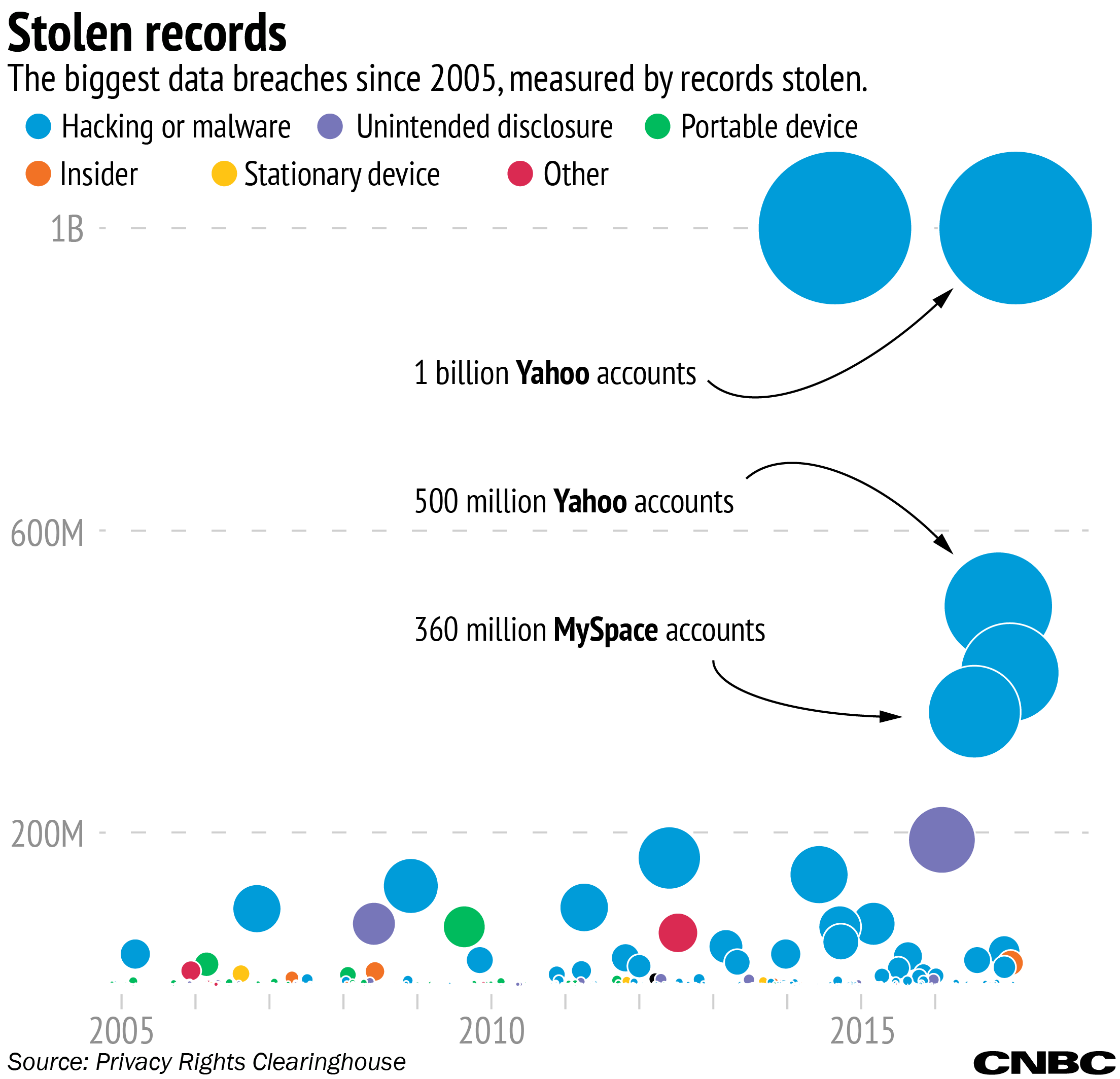More than a billion Yahoo user accounts were hacked in 2013.
That comes in addition to the 500 million user accounts that were stolen in 2014, a breach that was announced in September. At the time, that attack was regarded as the largest-ever single-source data hack in history. Then on Wednesday, the company announced a second hack that more than doubled the record.
In recent years, high-profile hacks have been bigger and more frequent. Some of that trend stems from greater use of online storage and social media. Some is linked to more sophisticated tools being deployed to get your personal information. Theft of portable devices like laptops and unintended disclosures used to account for much more of the data breaches that happened, according to a database of reported breaches.
This year has seen an increase in reports of massive hacks, some of them dating back years.





